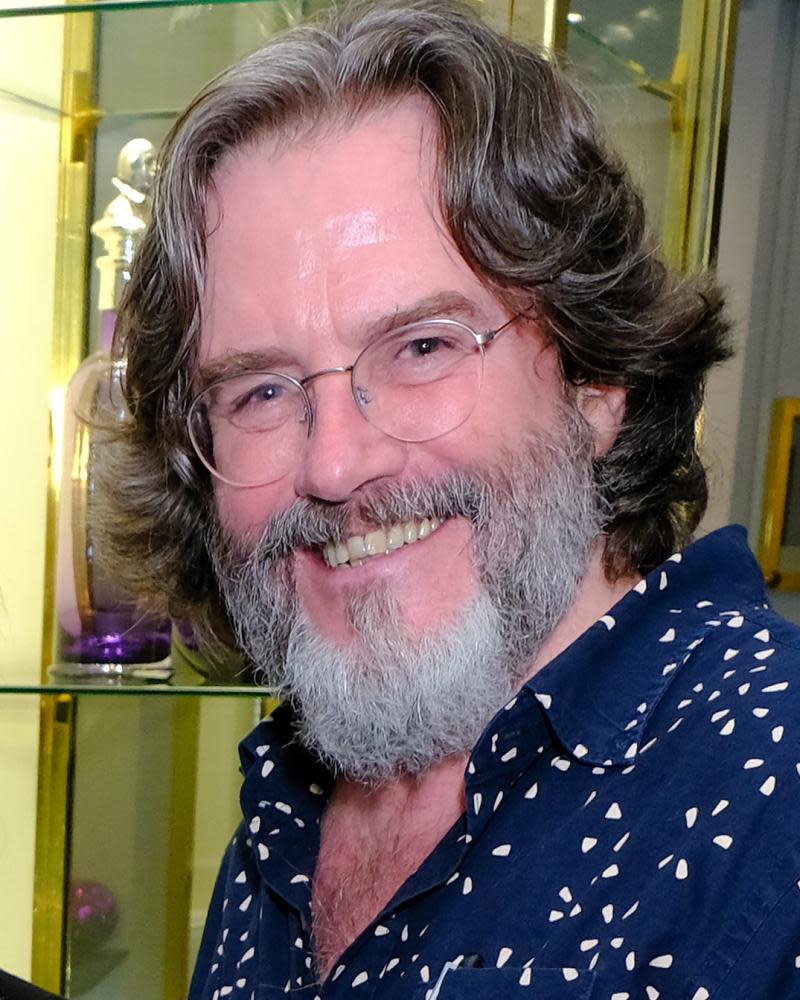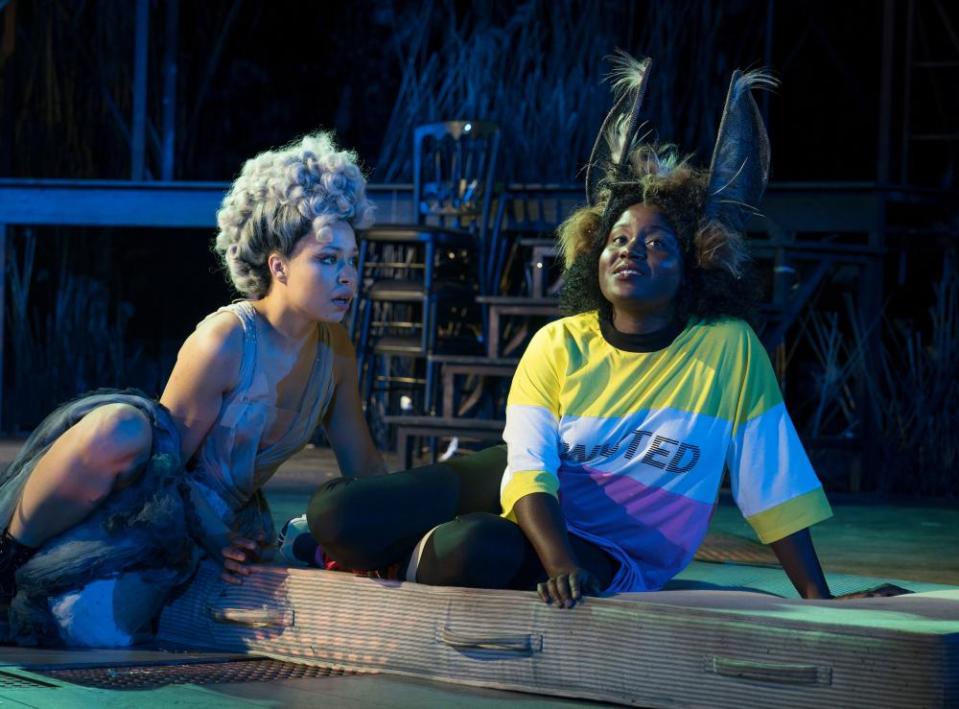Fight a pigeon for your seat! Unforgettable theatre encounters
‘Small enough to hear a whisper’
Tallulah Brown: The Pumphouse in Aldeburgh is a fairytale venue, a coat of many colours. Once upon a time before Covid, if you headed towards the marshes you’d stumble across it, disused for pumping but still very much host to theatre, music and comedy. In my 20s I programmed it for the Aldeburgh music festival and came to know the building intimately, as you do when you’re responsible for ticket stubs, loo roll, standing ovations and walkouts. The brick building is small enough to hear a whisper; a hush descends and musicians often abandon their microphones. HighTide transformed the space when they produced Al Smith’s explosive play Harrogate on a purpose-built, glowing, white thrust stage. Punchdrunk used the surrounding field during Britten’s centenary: every 10 minutes an audience member wearing headphones would walk in the footsteps of Peter Grimes and step on to the marshes where they were met by crowds pointing accusingly from the reeds. The Pumphouse is where my band did our first gig, it’s where HighTide programmed my play Songlines. It’s a fairytale because it’s always an adventure, a surprise: Eleanor Bron reading Tennyson’s Enoch Arden followed by a vegetable orchestra playing a drilled parsnip. And like a fairytale, we hope for a happy ending, where we’re sat once again in a room of about 70 strangers, waiting for the lights to go down.
Tallulah Brown’s play When the Birds Come was at the Edinburgh fringe and her radio play Silver Darlings was on Radio 3. She is developing an original TV series with Sister Pictures and is part of girlband Trills. Read more about the Pumphouse.
‘We spied actors in the bar’

Gregory Doran: Schoolboy memories from the 1970s of cramming into Mr Malone’s scout van and heading 20 miles up the M6 from Preston to the Duke’s Playhouse in Lancaster (now known as the Dukes). Harriet Walter – long before she was the super assassin Dasha in Killing Eve – clog dancing in a musical by Victoria Wood’s dad, Stanley, and delivering a harrowing performance as Goody Proctor in The Crucible. My classmates squealing when David Calder, as Eddie Carbone, kissed Rodolfo in A View from the Bridge; then watching him a few weeks later as Macbeth. Ben Cross (years before Chariots of Fire) in Sweeney Todd, and apparently the whole of smoky Victorian London on stage. Gwendolyn and Cicely furiously splashing about in an onstage pool in The Importance of Being Earnest. Seeing some great plays, with the same great actors in show after show, and then if we were lucky, catching sight of them in the bar afterwards, before being packed back in the van home. It was an experience which changed my life.
Gregory Doran is artistic director of the Royal Shakespeare Company. Read more about the Dukes.
‘Love at first sight’
Susan Wokoma: I had never seen a show at Regent’s Park Open Air theatre before 2018. Embarrassing, as for years I went to a community Saturday drama class at St Marylebone School (a stone’s throw away) before attending the sixth form. When I finally made my first visit, I fell in love. It is the most beautiful theatre in London. Then a year later in 2019, I played Bottom in their first Midsummer Night’s Dream in over 20 years. Being on that stage as the sun set and the birds rustled in the trees above, was unspeakably nourishing. I’ve never worked in a friendlier building and being in the bar after the show felt like you were on holiday. I can’t wait to fight a pigeon for a seat again.
Susan Wokoma will next star in Enola Holmes on Netflix and Truth Seekers on Amazon. Read more about Regent’s Park Open Air theatre.

‘The place felt owned by everyone’
Rachel O’Riordan: Belfast’s Old Museum Arts Centre was the place that gave me a start. It is now relocated and remodelled as the more glamorous Mac. But in the early 2000s the Omac, as everyone called it, was the creative heart and soul of a post-Good Friday agreement Belfast. There were several funded independent theatre companies in the city including Ransom, which I formed to produce Hurricane, written and performed by Richard Dormer. It was the first show I ever directed – despite that, the Omac programmed it. That was a bold move typical of a venue, run by Gillian Mitchell and Anne McReynolds, that captured the “let’s have a go” attitude of Belfast then. So many local companies had their work supported there, making it feel owned by everyone. There were volunteer ushers, tiny budgets and the brilliant Michael Draine as sole in-house technician who did everything. It was a tiny black box at the top of a flight of stairs, 100 seats, but in that theatre magic happened.
Rachel O’Riordan is the artistic director of Lyric Hammersmith. Read more about the Mac.
‘I sobbed while the canteen staff set up lunch’
Samantha Lane: I have dedicated my working life to making theatre with and for young people, so I guess it is unsurprising that my school hall, in particular a theatre-in-education production of Too Much Punch for Judy, has shaped my entire career. I was 13 and I’d only been to the theatre once before – to see a pantomime – so my only experience of live theatre had been flamboyant and full of spectacle. In complete contrast, this was sparse – four empty chairs and a handful of performers – and we weren’t even facing the stage! However, I was completely transported by this simple verbatim production, and by the end of the 45-minute experience I was sobbing. I couldn’t believe that these actors, with minimal set and an amazing ability to ignore the canteen staff setting up for lunch around them, were able to move me so much.
Samantha Lane is the artistic director of the Little Angel theatre.
‘They tell you how they really feel’
Nigel Ng: Every comedian wants to play the London Comedy Store, and I was no exception. To get booked there you had to first go through King Gong, a brutal open-mic night where the audience is encouraged to boo you off - the ultimate “let the free market dictate what happens” scenario. It’s also one of the few times I’ve seen usually polite British society tell people how they really feel. Over the years I’ve risen through the ranks and now perform on their weekend lineups with some of the best comedians I’ve seen, some of them so good I fear following them because they would’ve decimated the crowd already. Comedy clubs sharpen a comic, they’re like the gym for us, making us stronger, faster, funnier. Without them every comedy show would feel like a monologue. And who wants that?
Nigel Ng is the host of Rice To Meet You, a podcast about Asian culture. Read more about the Comedy Store.

